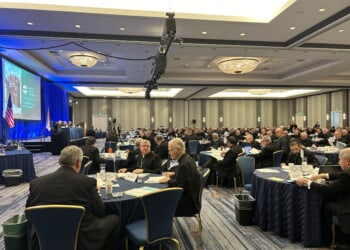Elliott Keck is the Campaigns Director for the Taxpayers’ Alliance.
It’s astonishing how much time this government is spending mopping up the mess that they made only a year or so ago. Usually it takes years to realise the damage done by a policy, or a piece of legislation, at least when it’s your own.
Whether it’s tax or immigration, Labour ministers are desperate to claim that they’re fixing the chaos of 14 years of Tory policy failures when in reality many of the problems are of their own making. On immigration, it is now widely briefed that senior officials think that scrapping Rwanda was a mistake. On tax, the chancellor is finally waking up to the fact that deciding to raise significant amounts of revenue while ruling out your three biggest revenue raisers is a truly bonkers approach to tax that leads you to highly destructive measures like the hike in national insurance on employers, as well as Laffer curve-busting hikes to capital gains tax and spirit duty. Although, of course, the original sin of the chancellor’s tax policy is deciding to raise any additional revenue at all when the tax burden is at a 75 year high. And then you have the ruinous decision to hike public sector pay without conditions, demonstrating to the unions that industrial action really does work.
In local government, one of the immediate errors made when Labour came to power was Angela Rayner’s bizarre decision to remove the “best value notice” that had been imposed on South Cambridgeshire District Council by the previous government. As a refresher, South Cambridgeshire had been running what was supposed to be a temporary, three month trial of a four-day week for five days pay which had been extended to well over a year. There had never been a vote at full council, nor was it mentioned in the governing party’s (the Lib Dems) manifesto in the local elections the previous year.
The trial was beset by scandal and a shocking democratic deficit. As a result, ministers imposed what’s known as a “best value notice”, a formal notification from the local government department about its concern that a local authority is not meeting its “best value duty” required by the Local Government Act 1999. This required South Cambridgeshire to provide regular data, improve productivity, and engage with the department among other measures.
Fast forward to Labour coming to power, and extraordinarily, the trial is still in place, having been extended indefinitely. A three-month trial, introduced without a vote or consultation with residents, had essentially been made permanent. Yet while the Conservatives had failed to kill the trial, their pushback, combined with our campaigning at the TaxPayers’ Alliance, had stopped this trend from spreading to other town halls. So when Angela Rayner, the then local government secretary, lifted the best value notice without condition, it signalled to councils up and down the country that the government was happy with local government going down to part-time on full-time pay.
As a result we now have a reported 25 local authorities seriously considering their own trials. And South Cambridgeshire have finally made their’s permanent but only after an utterly damning consultation in which local residents and businesses savaged the council for its dismal performance during the trial. The final vote came only two and a half years after the three month experiment began in January 2024.
Clearly Steve Reed, Rayner’s replacement in the ministry for housing, communities and local government, has woken up to the immense political danger of local government becoming part time on Labour’s watch. It would be the ultimate insult to working people if they see their wages for five days work squeezed ever more at the budget only to see their local council staff get given an extra 52 days off per year. In what seemed to be a surprise to everyone, Reed wrote to the council in recent days to express his “deep disappointment”, and telling the leader of the council that “Our collective focus on delivering value for money for taxpayers must be unyielding.”
This is a hugely welcome development, but it’s likely to have come too late for the residents of South Cambridgeshire (who, by the way, were utterly scathing of the council in a consultation held ahead of a final vote). The trial was made permanent over summer, and with staff now almost three years into these working practices it will be difficult to overturn it.
But an obvious next step for Steve Reed and the Labour government to take is to link central government grants to working hours in local authorities. If a council wants to cut its staffing hours by 20 per cent, it should be assumed that its staffing budget will be cut by 20 per cent, with government grants adjusted to account for the reduced cost of running that council. Staff get their four day week, and the government gets to make significant savings at a time when the public finances are in disarray. Everyone’s a winner.











![Florida Officer Shot Twice in the Face During Service Call; Suspect Killed [WATCH]](https://www.right2024.com/wp-content/uploads/2025/12/Inmate-Escapes-Atlanta-Hospital-After-Suicide-Attempt-Steals-SUV-Handgun-350x250.jpg)





